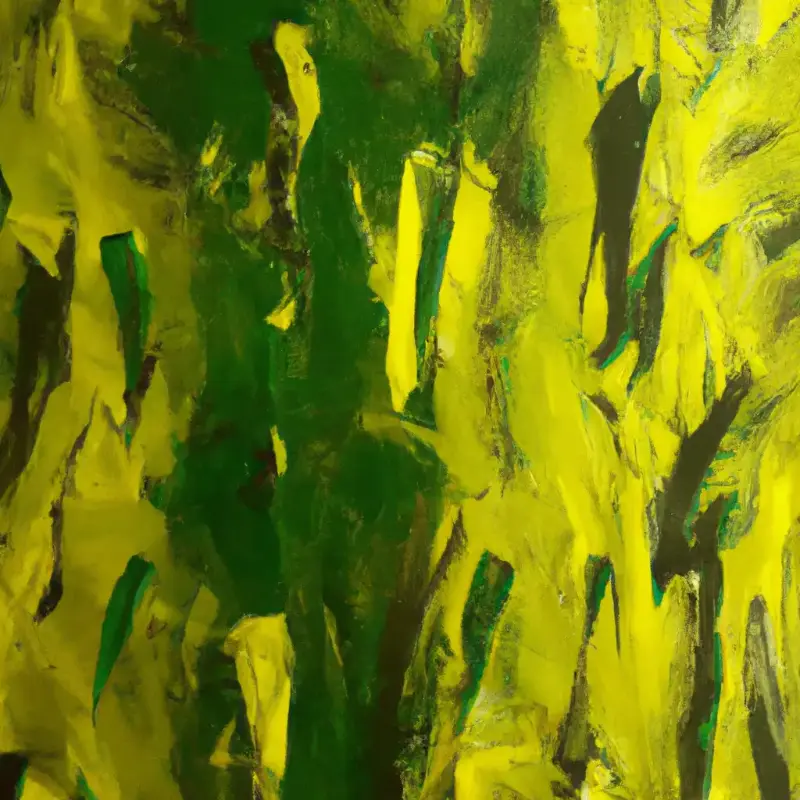Personality Traits and Preferences in Art Styles

Discover how your personality traits and preferences influence your choice of art styles. Explore the fascinating connection between who you are and what you love.
🎨🖼️👨🎨👩🎨🖌️🌌🕌🏛️📐🎭
- Impressionism: Capturing the Moment
- Emotional Impact: Evokes fleeting beauty and light
- Color Palette: Vibrant, with visible brush strokes
- Subjects: Natural landscapes, daily life
- Surrealism: Dreamlike Visions
- Emotional Impact: Provokes curiosity and challenges reality
- Color Palette: Varied, often with a juxtaposition of the mundane and bizarre
- Subjects: Dreams, the unconscious mind, fantastical imagery
- Abstract Expressionism: The Sublime and the Intuitive
- Emotional Impact: Aims to express raw emotion and inner turmoil
- Color Palette: Bold and emotive, often non-representational
- Subjects: Emotional landscapes, non-objective forms
- Minimalism: The Essence of Simplicity
- Emotional Impact: Invokes contemplation and introspection
- Color Palette: Monochromatic or limited variation
- Subjects: Geometric shapes, reduction to essentials
- Pop Art: The Iconic and the Commercial
- Emotional Impact: Reflects on everyday culture and consumerism
- Color Palette: Bright, bold, and often satirical
- Subjects: Popular culture, advertising
- Neo-Expressionism: Intense and Raw
- Emotional Impact: Communicates urgency and emotional rawness
- Color Palette: Vivid, often with heavy application of paint
- Subjects: Figurative depictions, social commentary
- Cubism: Shattered Perspectives
- Emotional Impact: Disorients and redefines the perception of space
- Color Palette: Earthy tones, fragmented visuals
- Subjects: Multiple viewpoints of a single object
- Futurism: The Dynamics of Motion
- Emotional Impact: Conveys energy and the power of technology
- Color Palette: Bright, with a sense of movement
- Subjects: Speed, technology, modernity
- Art Nouveau: The Elegance of Nature
- Emotional Impact: Celebrates beauty and organic forms
- Color Palette: Soft, harmonious, often inspired by nature
- Subjects: Flora and fauna, feminine curves
- Classical Realism: The Timeless Virtue
- Emotional Impact: Emphasizes beauty and harmony
- Color Palette: Lifelike, with a focus on light and shadow
- Subjects: Traditional subjects, human form
Exploring Artistic Expressions and Personality Reflections #
Art is a universal language that transcends cultural and linguistic barriers, touching the core of human emotion. Each art style carries its unique emotional impact and aesthetic, providing insights into the artist's inner workings as well as the viewer's personality. What does your preference in art say about your personality? This fascinating intersection of psychology and aesthetics is noteworthy, igniting curiosity about how one's personality traits might influence art preferences.
The Emotional Resonance of Art Styles #
In considering Impressionism, one cannot ignore its power to capture the ephemeral beauty of a moment. Known for its vibrant colors and visible brushwork, Impressionism evokes a sense of fleeting light and beauty, suggesting that those drawn to this style may appreciate subtlety and have a heightened sensitivity to their surroundings.
Moving into the realm of the mind, Surrealism stands out for its dreamlike and often bizarre imagery. It challenges perceptions of reality and provokes a sense of curiosity. Surrealist art pushes boundaries, hinting that admirers of this style might be creative thinkers who embrace the unconventional.
Abstract Expressionism strips away the representational to focus on raw emotion and intuition. The bold use of color and non-objective forms in this style might resonate with those who are deeply introspective, valuing the emotional journey over realistic portrayal.
Minimalism reduces art to the essentials, leaving a stark impression on the viewer. The simplicity and often monochromatic palette invite contemplation, suggesting that fans of this style may value clarity, order, and the essence of simplicity.
Personality Traits and the Cultural Commentary of Art #
Pop Art throws the spotlight on everyday culture and consumerism with its bright, bold colors. Those who gravitate towards this style may have a keen eye for satire and may be reflective of societal norms and the impact of mass media.
In stark contrast, Neo-Expressionism conveys an urgency and rawness that can be felt through its intense use of color and form. Lovers of this art style might share a passion for social commentary and have an emotionally charged approach to life's experiences.
Cubism, with its shattered perspectives and fragmented visuals, redefines the perception of space. Appreciators of this groundbreaking style may value diversity in thought and possess the ability to understand complex, multifaceted concepts.
Futurism is all about the dynamics of motion and the power of technology, using bright colors to convey a sense of movement. Those who are captivated by this style may be forward-thinking, embracing innovation, speed, and the rhythm of modern life.
For the nature and beauty enthusiasts, Art Nouveau provides an elegant escape. Its emphasis on organic forms and soft, harmonious colors suggest that its admirers might have a love for the intricacies of nature and the fluidity in design.
Lastly, Classical Realism reflects an admiration for beauty, harmony, and the timeless virtue of the human form. Aficionados of this style may value tradition, skill, and a balanced approach to life's aesthetics.
In conclusion, art styles not only reflect the artists' visions but also mirror the preferences and personalities of their viewers. It is a dance of emotional resonance and intellectual alignment that uniquely characterizes individual tastes in the vast world of art. To explore this connection further, engage with various art styles and discover what truly resonates with your soul. The expression of art remains a deeply personal journey for both the creator and the beholder.